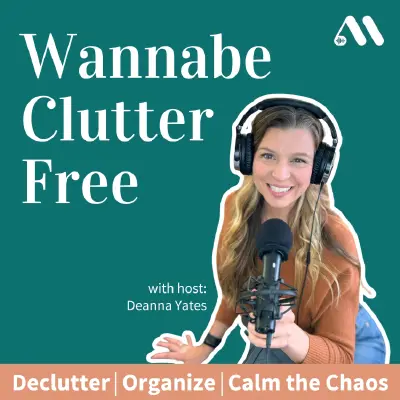Podcasts about How To
Episodes about How To
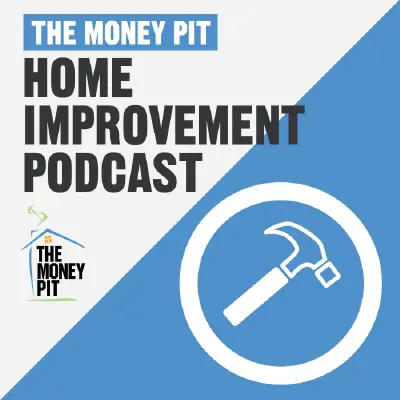
Jul 14, 2025
#2535 – Cool Tips to Beat the Heat | Pool Pros & Cons | Vacation Safety | Smart Roofing | Grill Care
The Money Pit Home Improvement Podcast ❭
SHOW NOTES:
This hour, we'll tackle a variety of common homeowner issues and share valuable advice to keep your home comfortable, safe, and looking its best. Here are some of the main topics we covered, along with the specific home projects our callers are working on:
- Cool Tips for Heat Wave Home Comfort: We share several strategies to help your home stay cool during a heat wave without escalating energy bills.
- Backyard Pool Considerations: We weigh the pros and cons of installing a pool, noting that while pools offer entertainment and can add value in hot climates, they come with significant initial costs and ongoing maintenance expenses.
- Home Safety While Traveling: We offer essential tips to keep your home safe while on vacation, emphasizing making it appear occupied.
- Smart Roofing Upgrades for Cooling: We discuss how your roof impacts your home's temperature and energy bills, highlighting cool roof designs
that reflect more sunlight and absorb less heat.
- Grill Cleaning & Maintenance: We’ve got practical tips on cleaning and
maintaining your grill to ensure better flavor, extend its lifespan, and provide a safer cooking experience.
Q & A:
- Allison from New York needs advice on humanely trapping a squirrel running between her drop ceiling and basement.
- Gary calls about a stubborn barbecue grease stain on the deck that household soap couldn't remove. We suggest using a commercial deck cleaner or stain stripper.
- Nancy from Arkansas asks for the best way to remove cobwebs and clean her mom's popcorn ceiling.
- John from Missouri is puzzled why his pressure-treated wood is rotting within two years despite being sealed with a solid stain.
- Judy from Minnesota observed moisture halfway down the paneling in her 40-year-old home, suspecting condensation and the need to reduce humidity.
- Earl called about buckling vinyl siding, likely due to being installed too tightly. Doing so prevented proper expansion and contraction, or not enough “breathing room.”
- Robin from New Jersey says her ceiling fan light comes on by itself at weird times. Flickering lights often indicate a loose wire or short circuit, and we recommend calling an electrician for investigation.
ASK A QUESTION:
Need help with your own home improvement or décor question? We’d love to help! Call the show 24/7 at 888-MONEY-PIT (888-666-3974) or post your question here: https://www.moneypit.com/ask.
Learn more about your ad choices. Visit podcastchoices.com/adchoices
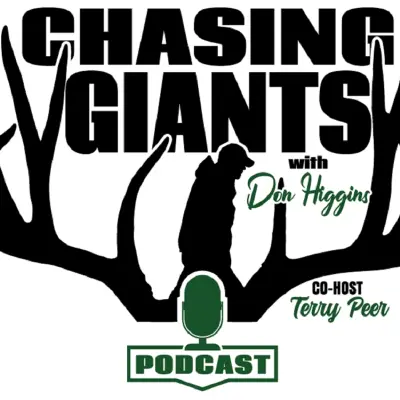
Jul 13, 2025
Episode #281 - How Don Tracks Giant Bucks Years in Advance
Chasing Giants with Don Higgins ❭
Don Higgins and Terry Peer are back with a packed episode of the Chasing Giants Podcast, diving deep into trail camera strategy, food plot updates, listener questions, and some wild woods stories you won’t believe.
🦌 Topics This Week:
Don’s July 4th trail camera deployment strategy
Tracking a buck across 4.5 miles and multiple years
Don’s tiers of camera locations: Bachelor Groups, Strategic Monitoring, and Exploratory Placement
Food plot updates — what’s working in the drought and how herbicide programs saved the season
Funny trail cam encounters — including a Christmas Day turnip theft and a legendary woods story
Listener Q&A on deer movement, food plot weed control, and managing doe populations
The truth about managing genetics — and a teaser for next week’s deep dive on how Don’s long-term strategies have altered the buck genetics on his farm
📸 Trail Cam Tip of the Week: Use every summer picture as a data point — even if the buck’s not a shooter yet!
🎯 Listener Questions Sponsored by: Midwest Land Group
🦾 Blind Sponsor: 360 Hunting Blinds – Check out the Chasing Giants Edition Blind
▶️ Subscribe and turn on notifications — Season is almost here and these strategies are dialed in!
Our sponsors for Chasing Giants TV include: -
Asio Camo Gear - www.asiogear.com -
Midwest Land Group - www.midwestlandgroup.com -
Mike's Mighty Micros - www.mikesmightymicros.com -
Victory Auto Group - www.victorykc.com -
360 Hunting Blinds - www.360huntingblinds.com -
Real World Wildlife Products - www.realworldwildlifeproducts.com -
Mathews Archery - www.mathewsinc.com -
Gingerich Tree Farms - www.gingerichtreefarm.com -
Brenton USA - www.brentonusa.com -
Vortex Optics - www.vortexoptics.com
Any reproduction of this content without the written permission of Chasing Giants TV LLC is strictly prohibited.

Jul 12, 2025
5 Costly Mistakes in Real Estate Investing (And Fixes!) w/ Ian Drewe
Real Estate Investing with the REI Mastermind Network ❭
Discover the 5 costly mistakes in real estate investing and how to avoid them! Learn from Ian Drewe, a seasoned real estate investor and multifamily expert, as he shares his journey from Australia to becoming a prominent name in U.S. real estate. From navigating multifamily assets to building an investment portfolio, Ian provides actionable strategies, lessons learned, and proven real estate investment strategies to help you create generational wealth.🚀 What You’ll Learn in This Episode:Common pitfalls in real estate investing and how to fix them.The importance of strategic renovations and building strong investor relationships.How data, technology, and AI are transforming deal sourcing and underwriting.Insights into multifamily properties, Section 8 housing, and the current market trends.Tips to grow and scale your investment portfolio while staying focused on the fundamentals.👥 Connect with Ian Drewe! Visit https://avocaproperty.com/ for more about his multifamily investment strategies and how his team is creating opportunities in Texas, Florida, Oklahoma, and South Carolina.🎧 Subscribe to the REI Mastermind Network PODCAST! Don’t miss out on Ian's incredible insights and other expert advice to take your real estate investing game to the next level.💡 "Relationships are everything. Maintain strong connections with your investors, and success will follow." – Ian Drew🔥 Support the show by sharing this episode with your investor friends, liking the video, and subscribing to the channel. Your engagement helps us bring you more transformative stories and expert advice!Unlock the secrets to building wealth through real estate investing. Hit that subscribe button and join a community dedicated to creating generational wealth through smart investment strategies!#realestaterookie #housingmarket #duediligence #multifamilydemand #interestratesCHAPTERS:00:00 - Intro00:16 - Real Estate Journey02:52 - Current Focus in Real Estate04:57 - Emerging Trends in Real Estate08:00 - Data and Technology in Business12:12 - Jackson Place Overview17:49 - Avoiding Digital Marketing Pitfalls19:11 - Choosing the Right Mastermind Group20:14 - Understanding Bait and Switch Tactics23:21 - Future Plans for Ian25:45 - Missed Topics of Discussion26:18 - Personal Lies and Self-Reflection26:36 - Advice to Younger Self26:54 - Recommended Reading27:18 - Time-Saving Tools in Real EstateRealDealCrew.comWe empower real estate investors by optimizing your business processes through customized automation and system integration. From lead management to deal closure, we help you build a scalable and efficient operation. Learn more at RealDealCrew.comLIKE • SHARE • JOIN • REVIEWWebsiteApple PodcastsYouTubeYouTube Music
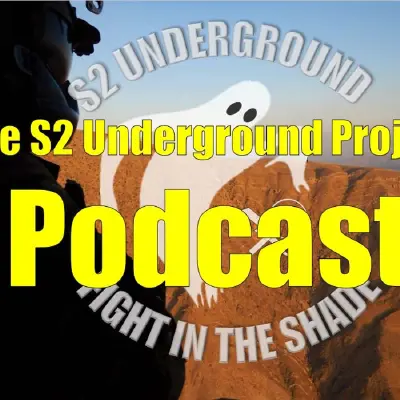
//The Wire//2300Z July 10, 2025////ROUTINE////BLUF: MERCHANT VESSELS SUNK IN RED SEA. FLOODING CONTINUES AROUND THE UNITED STATES.// -----BEGIN TEARLINE------International Events-Red Sea/HOA: Two commercial vessels have been sunk off the coast of Yemen by Houthi forces over the past few days. On July 6th, the M/V MAGIC SEAS was struck by cruise missiles and Unmanned Surface Vessels (USVs), which was rapidly followed up with small arms and RPG attacks via militants in small boats. The next day, the M/V ETERNITY C was attacked in a similar manner. Both vessels suffered severe flooding, finally sinking overnight.-HomeFront-Washington D.C. - This morning the FDA granted approval for Moderna's new "Spikevax" COVID-19 vaccine for children 6 months old to 11 years old. Following concerns expressed by the agricultural community, the USDA has reversed their stance on allowing cattle to be imported from Mexico. The decision to re-close livestock imports was made following a new infestation of New World Screwworm (NWS) being reported at a higher latitude than previously disclosed by Mexican officials, and that NWS was present in herds of livestock much closer to the US/Mexico border than previously known. As of right now, all ports of entry are closed to Mexican cattle, while the parasite continues to spread throughout Mexico.Southern USA: Flooding incidents remain constant as severe weather systems continue to develop throughout the region. More severe flooding was reported throughout North Carolina, with water rescues continuing in Durham and many downed trees causing power outages. The Graham–Mebane Water Treatment Plant went offline due to flooding damage, causing a brief water shortage throughout the city of Mebane.The flooding recovery in Texas continues as the total casualty count climbs to 120x fatalities and around 173x people still being unaccounted for. In New Mexico, 3x fatalities were reported as a result of the floods over the past few days, as flash floods struck the town of Ruidoso.-----END TEARLINE-----Analyst Comments: Heavy rain is still being forecast for many areas throughout the American South and along the east coast for the next few days. Considering the rain that has already fallen, in many areas the ground is already saturated, making flooding and landslides much more of a risk. Now is the time to prepare, and consider the impact of weather events becoming much more severe than originally forecast.Analyst: S2A1Research: https://publish.obsidian.md/s2underground//END REPORT//
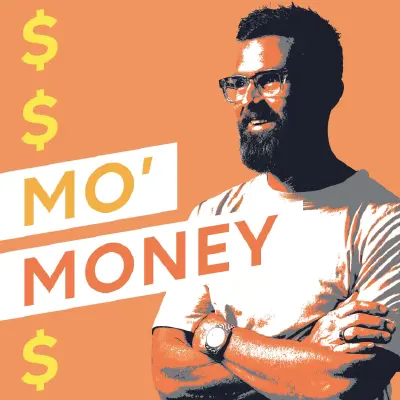
In this episode of the Mo Money podcast, we're talking about inheritances, tax on inheritances, and how you can invest that money. Now we're in the middle of a three and a half trillion dollar intergenerational wealth transfer from the Boomers down to the generations below, so in this episode we're unpacking how inheritance tax really works in Australia, even though they say that there's none. There actually is, as well as how you can protect the family wealth across different generations, and a little bit on how you can be talking to your parents about this stuff without it turning into a disaster. So this one, I think, is perfect for anyone that's expecting to receive an inheritance or planning to leave one. Want to make smarter money moves and get ahead faster? Upcoming events: https://www.eventbrite.com.au/o/ben-nash-pivot-wealth-34379655697 Learn more about Pivot Wealth: https://pivotwealth.com.au/ Check out Ben’s book, Get Unstuck: https://www.getunstuckbook.com.au/ Check us out on socials: TikTok: https://www.tiktok.com/@bentalksmoney Instagram: https://www.instagram.com/pivotwealth/ Youtube: https://www.youtube.com/c/BenNashPivot Facebook: https://www.facebook.com/pivotwealth/ Chat about how Pivot Wealth can help with your money: https://calendly.com/pivot-new-clients/intro-chat-w-pivot-wealth Note: The advice shared on this podcast is general in nature and does not consider your individual circumstances. The podcast exists purely for educational purposes and should not be relied upon to make an investment or financial decision. If you do choose to buy a financial product, read the PDS, and TMD and obtain appropriate financial advice tailored towards your needs. Ben Nash and Pivot Wealth are authorised representatives of Fish Tacos Pty Ltd, ABN 14 649 248 082, AFSL 533055
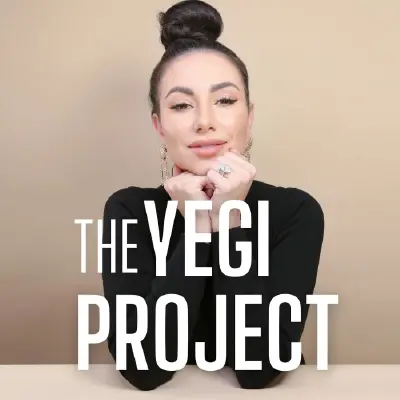
Jul 09, 2025
Feeling Isolated? Here’s What a Therapist Wants You to Know with Tanya Ruckstuhl
The Yegi Project ❭
In this episode of The Yegi Project, psychotherapist Tanya Ruckstuhl discusses the critical role of community in mental health, particularly in the context of increasing isolation during and after the COVID-19 pandemic. She shares personal experiences and insights from her practice, emphasizing the importance of social skills, conflict resolution, and empathy in building and maintaining relationships. Tanya also addresses common myths about social anxiety and the need for outreach, while reflecting on her parenting journey and the lessons learned along the way. Ultimately, she encourages listeners to recognize their self-worth and the value of connection in their lives.Connect with Tanya Ruckstuhl!Website: https://www.therapistseattle.net/Takeaways• Isolation is an epidemic affecting mental health.• Community provides support and reduces feelings of shame.• Social skills are crucial for making friends and building connections.• Conflict in relationships is normal and can be constructive.• Social anxiety often leads to miscalculating risks of social interactions.• Empathy is essential for resolving conflicts and understanding others.• Parents should prioritize quality time with their children over productivity.• Different social needs in relationships are valid and should be respected.• Self-worth is fundamental to making positive life changes.• Social media can distort perceptions of reality and self-worth.If you would like to be a guest on a future episode of The Yegi Project, please email info@yegiproject.comThe Yegi Project is available on Apple Podcasts, Spotify, Stitcher and more!https://linktr.ee/theyegiprojectDisclaimer: This podcast or any other The Yegi Project episodes on this platform or other podcast streaming platforms is not legal business or tax advice. I make this content based on my own experience as a business owner and MBA for educational and entertainment purposes only. 🤎✨#theyegiproject Podcast Audio & Video Edited by Elizabeth Hadjinianhttps://www.elizvirtualassistant.com/Instagram - https://www.instagram.com/theyegiprojectTikTok - https://www.tiktok.com/@theyegiproject YouTube - https://www.youtube.com/@theyegiproject

Jul 09, 2025
Clutter is Not Sexy: Why a Messy Home Impacts Your Love Life (Pt 5 of the Empowering Life Series (Ep 265)
Wannabe Clutter Free | Declutter, Organize, Calm the Chaos ❭
If your bedroom feels more chaotic than cozy, clutter might be sabotaging your relationship.
Links in this episode (some may be affiliate links - thanks for supporting the show at no extra cost to you):
Follow me on Instagram: @wannabeclutterfree
Full show notes: wannabeclutterfree.com/265
Check out my favorite resources
****************
In this episode of the Wannabe Clutter Free podcast, host Deanna Yates shares how the physical clutter in your home can quietly build resentment, reduce intimacy, and increase arguments with your partner. Backed by research (including a stat that 40% of couples argue over clutter!), this episode explores the emotional and mental load clutter creates—and how to fix it.
You’ll learn:
✅ Why clutter causes stress in romantic relationships
✅ How to declutter your bedroom to rekindle connection
✅ The power of a “Couples Corner” and how to create one
✅ A simple weekly ritual to improve communication and teamwork
Whether you’re married, partnered, or in a long-term relationship, these practical tips will help you clear the physical and emotional mess that’s standing between you and the connection you crave.
If you’ve been feeling scattered, foggy, or stretched too thin, this episode will help you clear the noise (both around you and within you).
Time Stamps:
00:00 Introduction and Personal Updates
01:27 Clutter’s Impact on Romantic Relationships
01:57 The Clutter F.R.E.E.D.O.M. Method Explained
03:14 Why Clutter Causes Relationship Stress
04:32 Shocking Stats & Psychological Insights
08:19 Gender Differences & the Mental Load
14:51 Creating a Peaceful Bedroom Retreat
18:15 Establishing a Couple’s Corner
21:19 Clutter-Free Communication Ritual
24:01 Final Thoughts and Action Steps
Music:
Fresh Lift by Shane Ivers - https://www.silvermansound.com
Subscribe & Review:
If you loved this episode, please subscribe and leave a review! Your feedback helps me create more content to inspire and motivate you to live with less.
Learn more about your ad choices. Visit podcastchoices.com/adchoices

What if we told you there’s a way to get people practically begging to buy from you, without you having to be pushy, salesy, or awkward? What if you could flip a switch and suddenly, people want what you’ve got so badly, they chase you?Sounds like magic, right?It’s not.This one simple idea changes everything. And once you know it, you’ll never struggle to sell online again. It’s all about letting people experience what it’s like to work with you. And it works even if your audience is super skeptical and doesn’t trust anyone.Let’s dive in.Useful Episode ResourcesFREE list of the top 10 books to improve your email marketingIf you want to write better emails, come up with better content, and move your readers to click and buy, here's how. We put together this list of our Top 10 most highly recommended books that will improve all areas of your email marketing (including some underground treasures that we happened upon, which have been game-changing for us). Grab your FREE list here. Join our FREE Facebook groupIf you want to chat about how you can maximise the value of your email list and make more money from every subscriber, we can help! We know your business is different, so come and hang out in our FREE Facebook group, the Email Marketing Show Community for Course Creators and Coaches. We share a lot of training and resources, and you can talk about what you're up to.Try ResponseSuite for $1This week's episode is sponsored by ResponseSuite.com, the survey quiz and application form tool that we created specifically for small businesses like you to integrate with your marketing systems to segment your subscribers and make more sales. Try it out for 14 days for just $1.Join The Email Hero BlueprintWant more? Let's say you're a course creator, membership site owner, coach, author, or expert and want to learn about the ethical psychology-based email marketing that turns 60-80% more of your newsletter subscribers into customers (within 60 days). If that's you, then The Email Hero Blueprint is for you.This is hands down the most predictable, plug-and-play way to double your earnings per email subscriber. It allows you to generate a consistent sales flow without launching another product, service, or offer. Best news yet? You won't have to rely on copywriting, slimy persuasion, NLP, or ‘better' subject lines.Subscribe and review The Email Marketing Show podcastThanks so much for tuning into the podcast! If you enjoyed this episode (all about the psychology of marketing and the 9 things we use in all our email campaigns) and love the show, we'd really appreciate you subscribing and leaving us a review of the show on your favourite podcast player.Not only does it let us know you're out there listening, but your feedback helps us to keep creating the most useful episodes so more awesome people like you can discover the podcast. And please do tell us! If you don't spend time on email marketing, what do you really fill your working days with? We'd love to know!
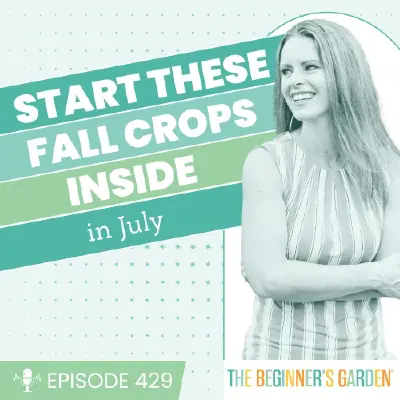
🎧 What to Start Indoors for Your Fall Garden (Yes, in July!) It may be blazing hot, but believe it or not—now’s the time to start thinking about your fall garden. In this episode, I’ll walk you through which crops you need to start indoors in July to ensure a bountiful fall harvest. We’ll talk about: 🌱 Why fall gardening actually starts in summer 🥦 Which crops to start indoors now (and why) ⏳ How to time your planting based on your first frost 💡 Summer seed-starting tips for healthy transplants 🌡️ The most common fall gardening mistake to avoid 🧑🌾 What comes next after these transplants 🎯 Want your fall garden planned for you? Grab your spot for my brand-new Fall Garden Planning Concierge Service – limited to Zones 6–8 and only 10 gardeners! I’ll create a custom plan, meet with you on Zoom, and even shop for your seeds if you choose the optional add-on. 👉 journeywithjill.net/planmygarden 💬 Got questions? Join my Live Zoom Q&A on July 9 at 12PM Central! Dream to Garden students are already invited—or you can join for $15: Click here to register 🎥 Seed Starting Workshop — Want more help with starting seeds indoors? Get my workshop for just $19 with code summer25 in July: 👉 Seed Starting Workshop Replay 🛒 Mentioned in this episode: Organic REV — Use code JILL10 at OrganicREV.com to save on this soil-boosting solution I use all season long. 👉 Subscribe, share with a gardening friend, and don’t miss part 2—coming soon—on what to direct sow for your fall garden! Show Notes: Thank you to our sponsors: Organic REV Organic REV Organic REV is an organic growth stimulant that can increase nitrogen efficiency by up to 25%, replaces depleted soil carbon and bacterial biomass, and absorbs nutrients to make them more readily available to plants via their root systems. Promo Code: Use promo code JILL10 for 10% off your order Want to learn more about Organic REV? Enroll in my FREE course that teaches you how to use REV in seed starting, transplanting and so much more! Click here to enroll. My Products: 2025 Complete Garden Planner (plus several new editions!) https://shop.journeywithjill.net/ Vegetable Gardening for Beginners Book: https://amzn.to/3TZeJux Products I recommend: Recommended Brands & Products page: https://journeywithjill.net/recommended-brands-and-products/ https://www.amazon.com/shop/thebeginnersgarden Connect with Jill: Sign up for Friday Emails: https://journeywithjill.net/gardensignup YouTube Channel: https://www.youtube.com/c/JourneywithjillNet/videos The Beginner's Garden Instagram: https://www.instagram.com/thebeginnersgarden/ Link to Beginner's Garden Podcast past episodes: https://journeywithjill.net/the-beginners-garden-podcast/ (*links above contain affiliate links, which means if you click through and make a purchase, we will earn a commission at no extra cost to you.)

